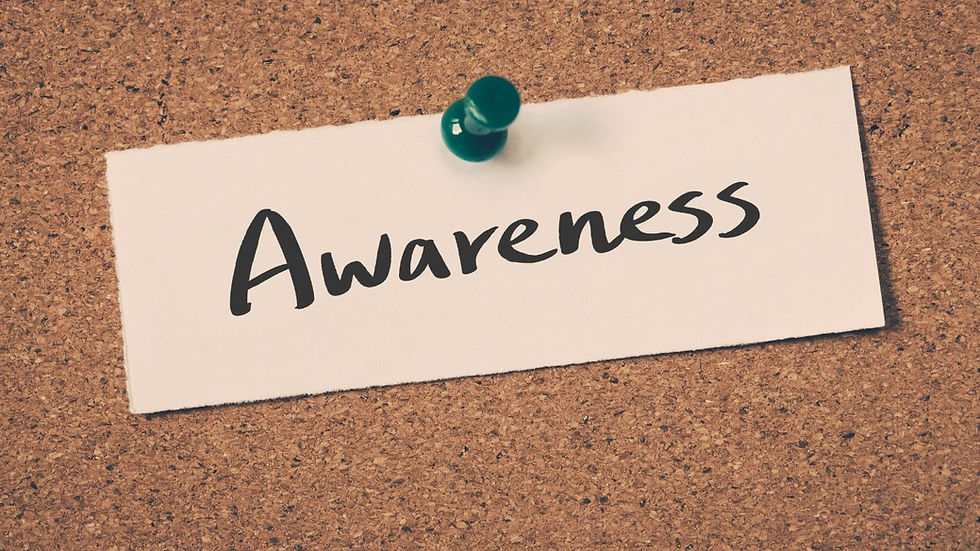Getting the Word Out: How Public Awareness Campaigns Are Shaping the Story of Wegovy in the UK
- AJ Hill Aesthetics

- Jul 31, 2025
- 3 min read
If you’ve heard of Wegovy, you’re not alone. A few years ago, few outside the medical world had even heard of GLP-1 medications. Now, Wegovy pops up in headlines, health forums, even dinner-table conversations.
But here’s the thing: just because people know the name doesn’t mean they know the facts.
That’s where public awareness campaigns come in. And in the UK, they’ve become an increasingly important part of how Wegovy is being introduced—not just as a drug, but as a potential part of a much bigger health conversation.
Let’s explore how these campaigns are being rolled out, what’s actually working, and what still needs more attention.
Why Awareness Still Matters

For anyone working in public health, it’s clear: knowledge doesn’t always equal understanding. A person might know that Wegovy exists, but they might still believe:
It’s only for celebrities.
It’s a shortcut with no real long-term benefit.
It’s out of reach or not available through the NHS.
Awareness campaigns aim to fill in the gaps with clarity, empathy, and credibility. They’re about creating a space where people can ask: Is this right for me? What does it actually involve? Who can help me decide?
In the UK, these efforts have been growing slowly—but smartly.
What the Campaigns Actually Look Like
So how do you talk about a medication like Wegovy in a way that sticks—and supports informed choices?
Public health teams and healthcare providers have taken a multi-pronged approach. In various parts of the UK, we’ve seen campaigns that blend:
Short-form video explainers (especially on social media), where NHS clinicians break down what Wegovy is—and what it isn’t.
Local outreach events in community health centres, where pharmacists and dietitians answer questions face-to-face.
Digital partnerships with content creators who share personal health journeys (with NHS input to ensure accuracy).
In Glasgow, for instance, a small campaign partnered with two local influencers—one with lived experience of obesity, another with a background in mental health—to open up real conversations about shame, access, and medication myths.
The tone? Real. Grounded. No “miracle cure” language. Just stories, questions, and guidance.
Are These Campaigns Making a Difference?

It’s still early, but signs are encouraging.
An internal report from a North London NHS trust showed that after a three-month awareness push, referrals to their Tier 3 weight management programme increased by 28%—with many patients citing Wegovy in their initial consultations. That doesn't mean everyone received the medication, of course, but it showed that the campaign succeeded in getting people to take the first step.
Community pharmacies involved in similar outreach efforts reported more walk-in questions about Wegovy, and an uptick in follow-through from patients who had been hesitant to talk about weight at all.
It’s not about mass adoption. It’s about normalising the conversation, especially in communities where weight-related health issues come with added layers of stigma or shame.
What Experts Recommend Going Forward
Dr. Reema Johar, a public health consultant in Leeds, stresses the need for continued, culturally sensitive messaging. “Too often, health campaigns miss the mark by talking at people. The best ones start with listening—what are people actually worried about? What’s getting in the way?”
She suggests future campaigns take cues from what’s worked in other areas: accessible language, trusted community voices, and honest discussions about pros, cons, and choices.
A few ideas gaining traction among campaign designers:
Community ambassadors, not just clinicians, delivering key messages in everyday settings
.
More regional tailoring, ensuring that messaging in urban Birmingham isn’t identical to rural Northumberland.
Addressing misinformation directly, especially as social media continues to influence public perception more than leaflets ever could.
What We’re Learning Along the Way
One takeaway? Awareness campaigns aren’t about pushing a product. They’re about inviting people into a conversation that many have felt excluded from.
They work best when they:
Respect where people are starting from.
Offer clear next steps—not just information, but support.
Acknowledge the emotional weight that often comes with the topic of obesity.
Wegovy may be a tool, but these campaigns are about the people—the lives behind the numbers. And when that’s the focus, awareness becomes more than messaging. It becomes a bridge to care.
Getting the Right Information in the Right Hands

If you’ve been curious about Wegovy—or if you’ve heard about it but don’t know where to start—you're not alone. That’s the whole point of these awareness campaigns: to make the path clearer, softer, and more grounded in real support.
Want to understand how Wegovy fits into NHS services or whether it might be a good option for you? We can help you navigate what’s available and how to begin—without pressure, just clarity.






Comments